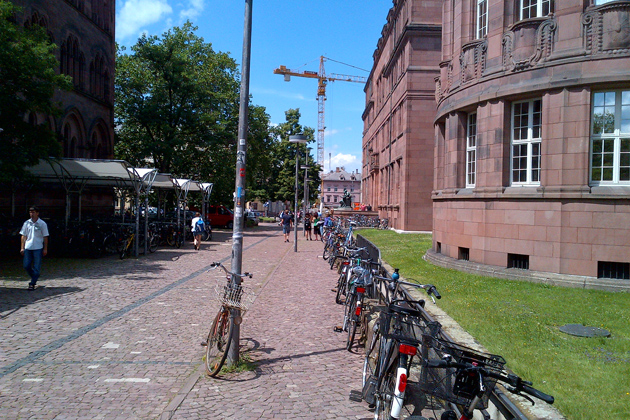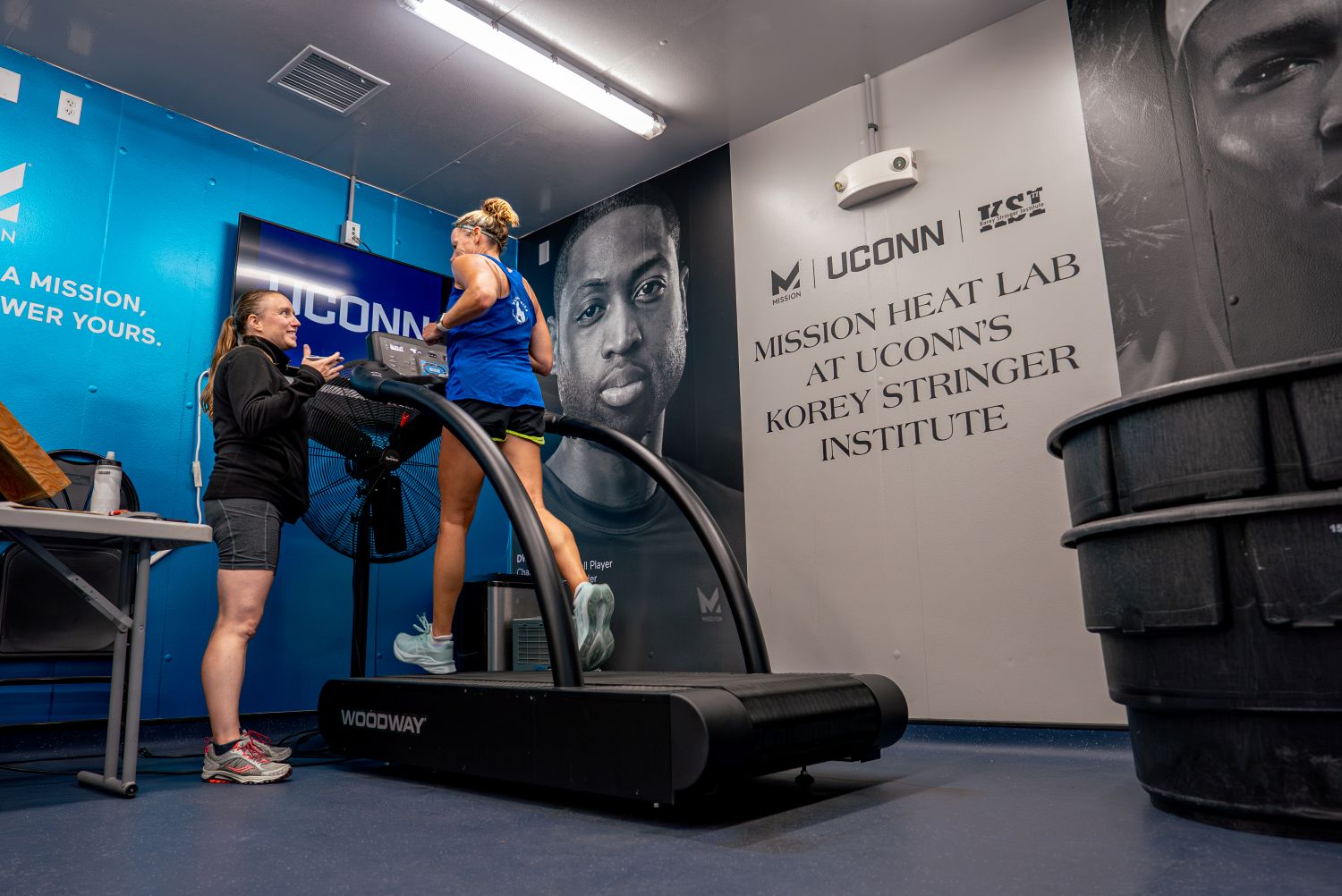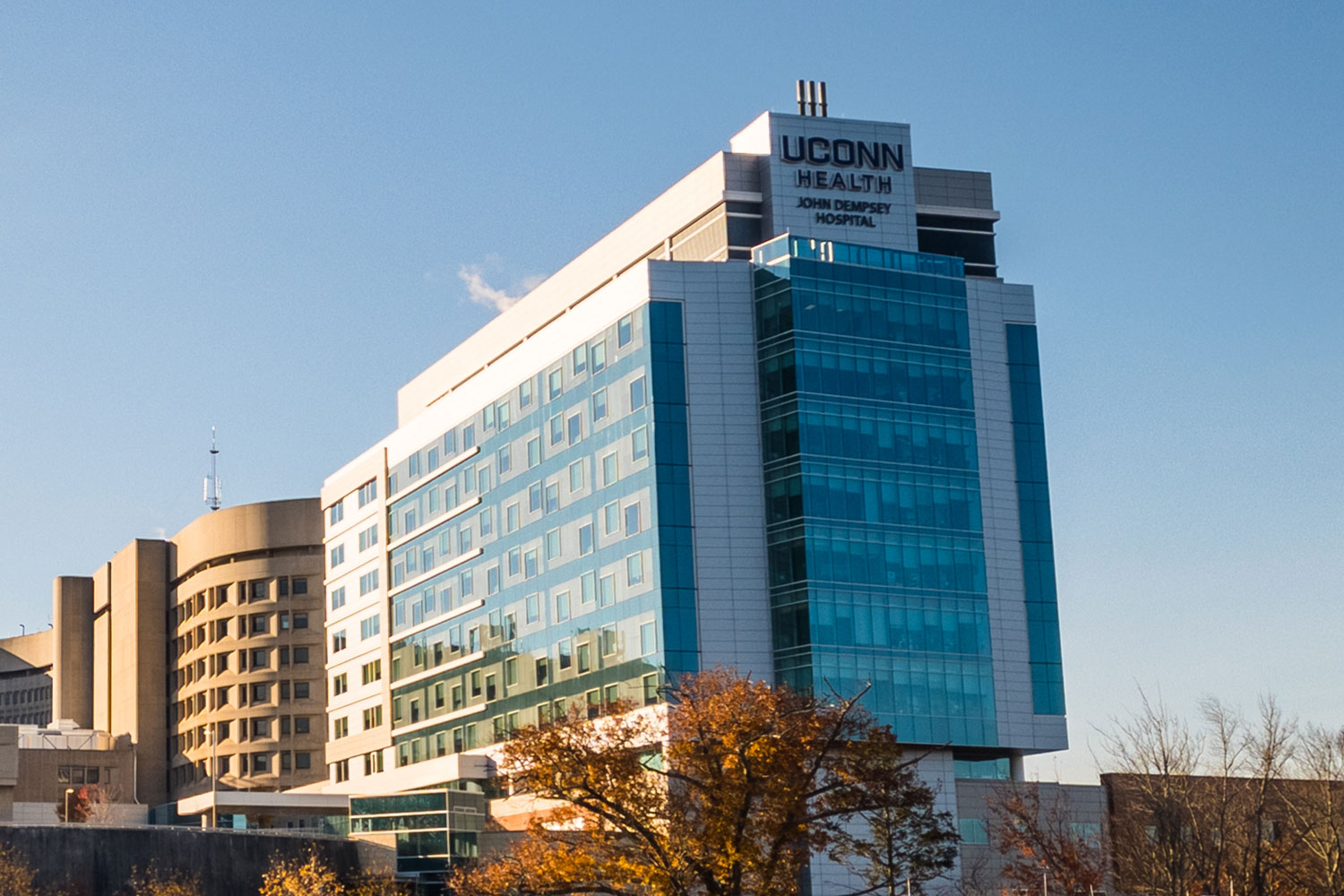Rich Miller, UConn’s Director of Environmental Policy, traveled on a grant from UConn’s Office of Global Programs to Freiburg, Germany in July, where he spent two weeks comparing and contrasting aspects of environmental sustainability at Albert Ludwig University (‘Freiburg Uni’) with similar sustainability initiatives at UConn.
In this excerpt from his blog, he discusses the role of bicycling in a college town. You can read Miller’s Sustainability Exchange blog posts in full on UConn Today’s new ‘Sustainable UConn’ blog, beginning this fall.

Preparing for my trip, I had read that Freiburg, a large college town by any standard (population 220,000) and an increasingly popular tourist destination, was not only Germany’s “solar city,” which makes sense given that it enjoys more sunny days than anywhere else in Deutschland, but also its “cycle city.”
I had read that as many as 30 percent of Freiburgers commute to work, class, and almost anywhere else they’re going, by bicycle – but that number seems lower than what I observed.
The easiest way to describe the difference between biking in Freiburg and the U.S., even compared to a college town like Storrs, is that bicycling here in southwest Germany, among students and the masses, is predominantly an alternative mode of transportation, certainly much more than it is a form of recreation or sport.
People of all ages ride everywhere, rain or shine, day or night, in their normal everyday attire: from business suits and ties, to long dresses, skirts, and skinny jeans, and with footwear from dress shoes, sneakers, sandals and boots, to bare feet.
My $4 Freiburg metropolitan area bike map, with the solid red lines indicating separate, paved bike trails, and dotted lines for pavement-marked lanes alongside the walkways or on the shoulders of streets, showed a network of trails so numerous and inter-connected that it looked like a half-eaten plate of spaghetti.
It’s all so convenient and connected that the university has found 5,000 bike racks on campus are not enough! This has become a problem for senior administrators, because hundreds of bikes are routinely locked to lamp posts, fences, trees, and anything else fixed to the ground, becoming an eyesore and occasionally even a fire safety issue when blocking exits and access points. So the university will be adding 500 bike parking spaces in the basement of its new library, now under construction and expected to open next year.
Picture dozens, if not hundreds, of bikes fearlessly zipping along the streets and narrow cobblestone roads and walkways, weaving through pedestrian and vehicle traffic that is every bit as heavy as it gets on North Eagleville Road (in the Science Quad) between classes, and you’ll have a pretty good image of Freiburg. Cars, bikes, and pedestrians here have learned to peacefully coexist. Everyone defers to cyclists, who seem pretty attentive and experienced at avoiding collisions.

Freiburg proved to me that when biking becomes a lifestyle choice and serves as a mode of transit that literally replaces the use of cars and other motorized vehicles, the population becomes healthier. I’m no slouch on a bike but many of the locals, young and old, passed us as we pedaled along at our leisurely pace.
Between biking everywhere, and hiking and mountain climbing in the Black Forest, Freiburgers are in good shape!
For more UConn sustainability news and information, visit the Office of Environmental Policy website.


